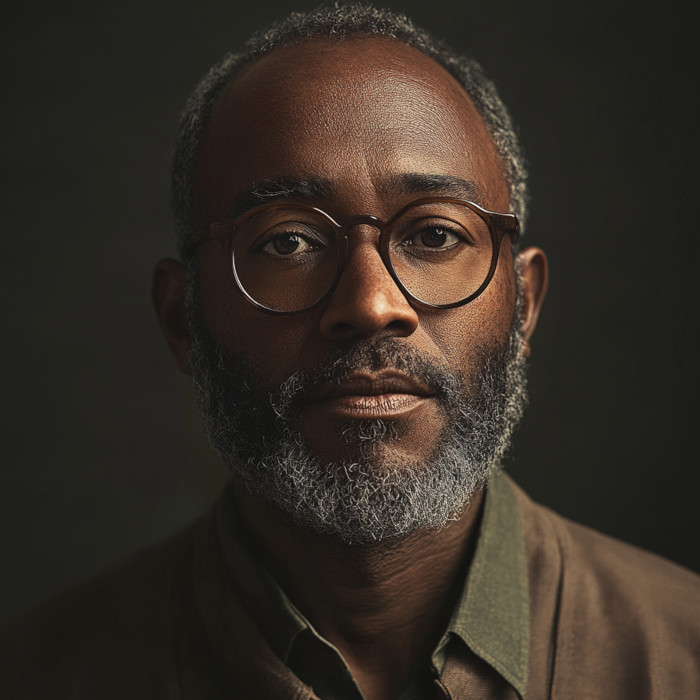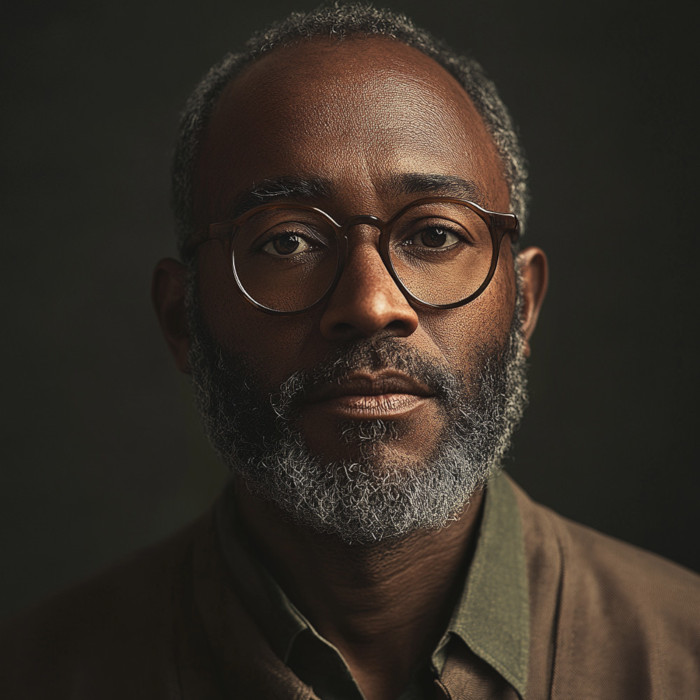


Amílcar Cabral (1924–1973) was a revolutionary leader, intellectual, agronomist, and nationalist who played a key role in the independence movements of Guinea-Bissau and Cape Verde from Portuguese colonial rule. He is one of Africa's most significant anti-colonial leaders, known not only for his strategic and organizational skills in guerrilla warfare but also for his intellectual contributions to the theory of national liberation. Cabral's work and thought continue to influence revolutionary movements and post-colonial studies around the world.
Birth and Background: Amílcar Lopes da Costa Cabral was born on September 12, 1924, in Bafatá, Guinea-Bissau, which was then part of Portuguese Guinea. His father, Juvenal Lopes da Costa Cabral, was a Cape Verdean schoolteacher, and his mother, Iva Pinhel Évora, was from an influential Cape Verdean family. The family moved to Cape Verde when Cabral was young, and he grew up in the archipelago, which was also under Portuguese colonial rule.
Education: Cabral was an exceptionally bright student. He attended secondary school in Cape Verde and later won a scholarship to study in Lisbon, Portugal. There, he enrolled in the Instituto Superior de Agronomia, where he studied agronomy. During his time in Lisbon, Cabral became politically active and co-founded several student movements that opposed colonialism and promoted African nationalism. His experiences in Portugal, where he encountered both the colonial elite and other African intellectuals, profoundly shaped his political ideas and commitment to the cause of African independence.
Return to Africa and Early Work: After completing his studies, Cabral returned to Africa, where he worked as an agronomist in Angola and later in Guinea-Bissau. His work involved conducting agricultural surveys and development projects, which gave him an intimate knowledge of the land and the socio-economic conditions of the rural population. This experience deepened his understanding of the link between land, agriculture, and the struggle for independence, and it informed his later strategies for guerrilla warfare.
Founding of PAIGC: In 1956, Cabral co-founded the African Party for the Independence of Guinea and Cape Verde (PAIGC) with a group of fellow nationalists. The PAIGC was dedicated to achieving independence for both Guinea-Bissau and Cape Verde through armed struggle and political mobilization. Cabral emerged as the party's primary leader and strategist, and he began organizing the rural population, building a network of support for the independence movement.
Guerrilla Warfare: Under Cabral’s leadership, the PAIGC launched a guerrilla war against Portuguese colonial forces in 1963. Cabral’s approach to the struggle was deeply rooted in his understanding of the socio-economic realities of Guinea-Bissau and Cape Verde. He believed that the fight for independence was not only a military struggle but also a social and economic one, and he emphasized the importance of winning the hearts and minds of the people. The PAIGC established liberated zones in rural areas, where they implemented social programs, built schools, and promoted agricultural development.
Political and Military Strategy: Cabral’s strategy was to avoid direct confrontation with superior Portuguese forces, focusing instead on guerrilla tactics and building parallel institutions that would serve as the foundation for a post-colonial state. He was also skilled in diplomacy, securing support for the PAIGC from various African nations, as well as from the Soviet Union, China, and other socialist countries.
Intellectual Contributions: Cabral was not only a revolutionary leader but also a prolific writer and thinker. His writings on colonialism, liberation, and national identity have become foundational texts in post-colonial studies. Cabral emphasized the role of culture in the liberation struggle, arguing that the decolonization process must include the reclamation and revitalization of indigenous cultures that had been suppressed under colonial rule. He famously stated, "Culture is the fruit of a people's history and a determinant of history, by the positive or negative influence which it exerts on the evolution of relationships between man and his environment, among men or groups of men within a society, as well as among different societies."
Assassination: On January 20, 1973, Amílcar Cabral was assassinated in Conakry, Guinea, by members of his own party who were believed to have been infiltrated by the Portuguese secret police (PIDE). His death was a significant blow to the independence movements in Guinea-Bissau and Cape Verde. However, the struggle continued, and Guinea-Bissau declared its independence later that year, on September 24, 1973. Cape Verde gained independence on July 5, 1975.
Legacy: Amílcar Cabral is remembered as one of Africa’s most important and influential anti-colonial leaders. His contributions to the theory and practice of liberation movements have had a lasting impact on revolutionary thought and post-colonial studies. Cabral's ideas about the importance of culture, the role of the rural population in revolutionary movements, and the necessity of combining armed struggle with social and economic development continue to be studied and applied by activists and scholars worldwide.
Commemoration: Cabral is honored in Guinea-Bissau, Cape Verde, and other parts of Africa as a national hero and a symbol of the fight for independence. His writings, speeches, and strategic insights remain influential in discussions of decolonization, national liberation, and the role of culture in political movements.
Amílcar Cabral was a visionary leader whose life and work significantly shaped the course of African independence movements. His unique blend of intellectual rigor, practical leadership, and deep commitment to the well-being of his people made him a pivotal figure in the history of Guinea-Bissau, Cape Verde, and the broader African continent. Cabral's legacy as a revolutionary leader and thinker continues to inspire struggles for freedom, justice, and dignity around the world. His contributions to the understanding of colonialism, culture, and liberation remain relevant to this day, ensuring that his impact endures long after his death.

We use cookies
We use cookies and other tracking technologies to improve your browsing experience on our website, to show you personalized content and targeted ads, to analyze our website traffic, and to understand where our visitors are coming from. Privacy Policy.